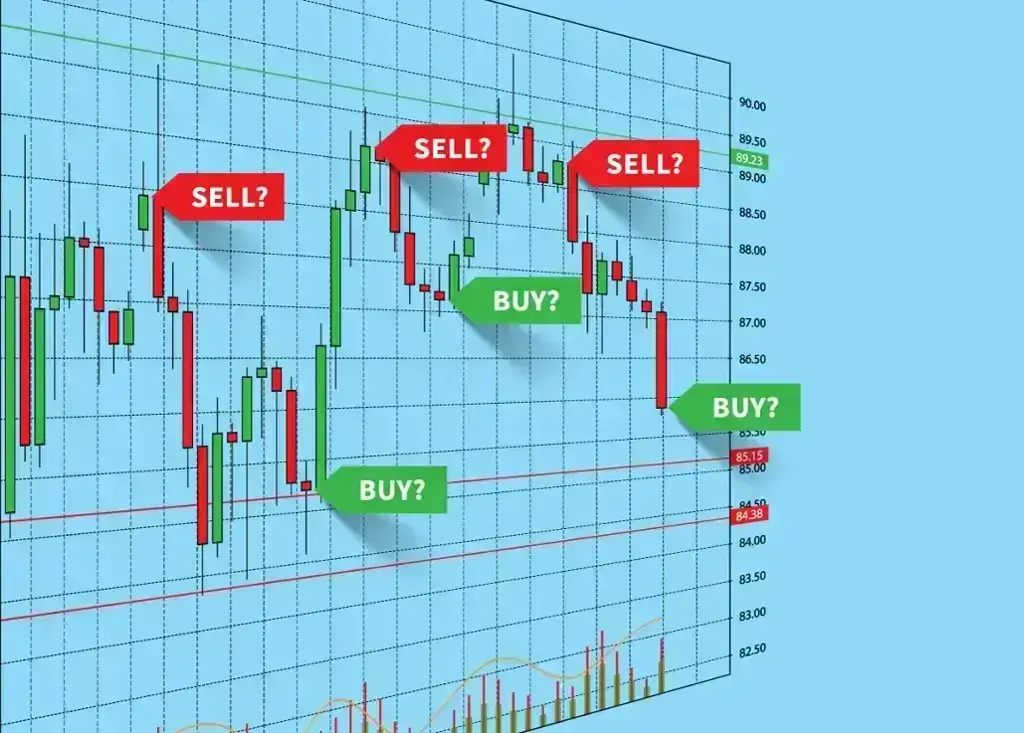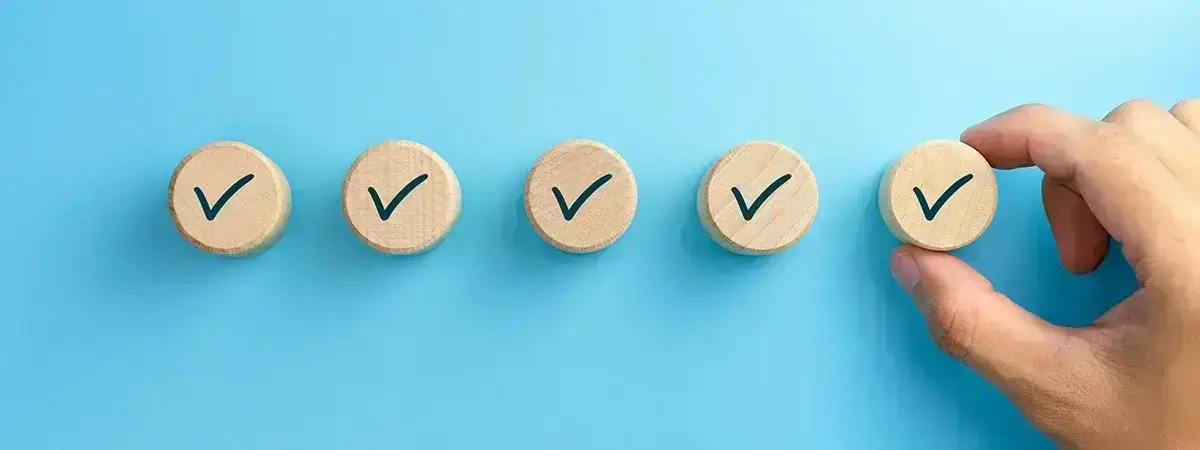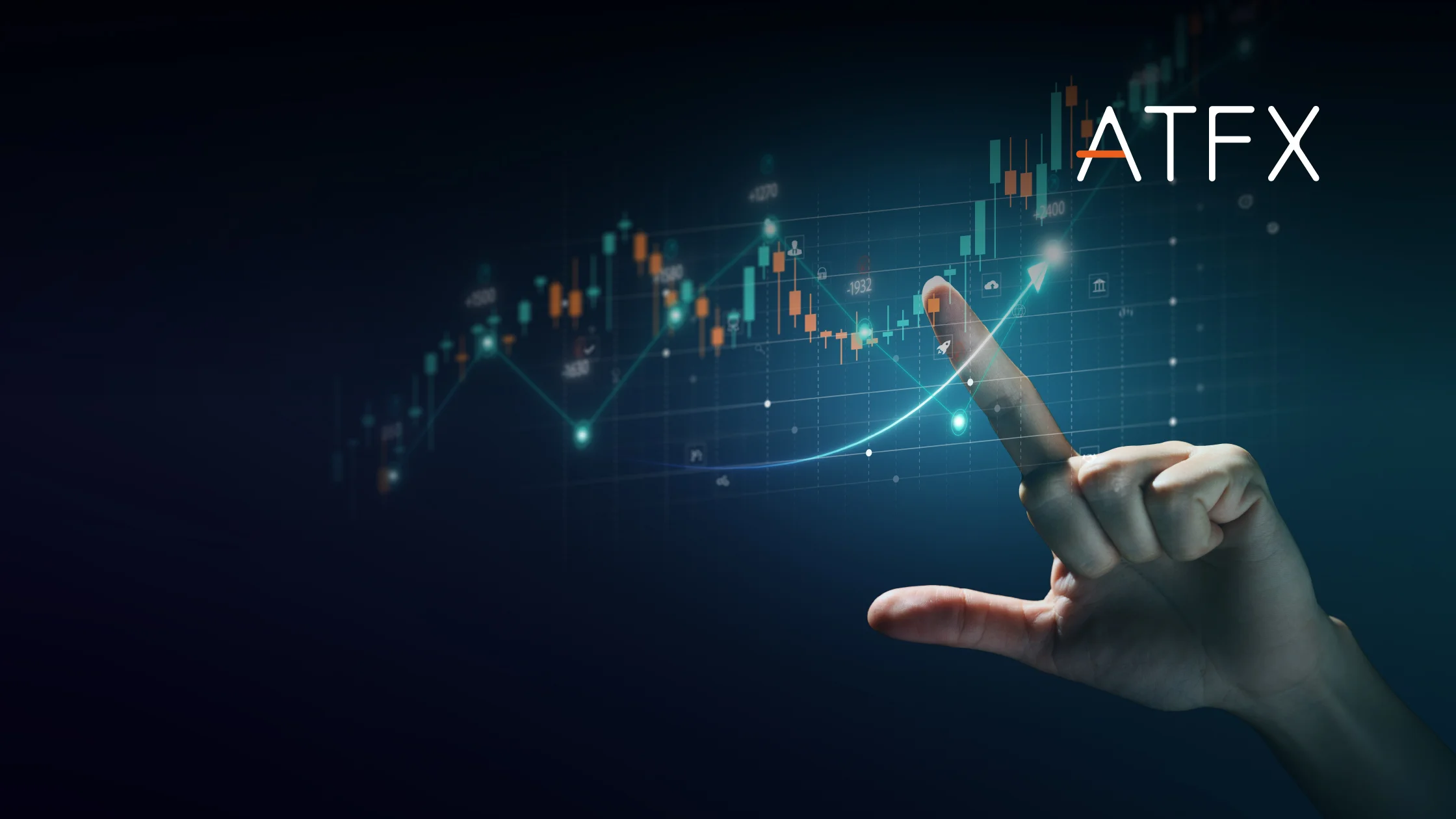How to start trading?
If you’re just starting your trading journey, our “complete guide for beginners” is aimed at you. You’re curious about online trading, you find the idea exciting, and ultimately you believe you have the qualities to become successful.
We’ll provide you with all the necessary tools, educational resources and extensive research that’ll get you started. We want to ensure your eyes are wide open when it comes to trading so that you understand both the risks and opportunities that come with the financial markets. You’ll avoid the pitfalls, and be aware of the steep learning curve you’re about to experience. A good steep learning curve that is.
Before you take the plunge and put your funds to work, there are many aspects of trading to consider. For example, what broker to choose, how much capital is required to open your account and what strategy you’ll use to trade your selected markets.
You can’t learn everything you need to know at once – trading is a long-term journey. What you can do, though, is give yourself the best possible start by building the right foundations and begin acquiring valuable knowledge at the outset.
How does trading work?
You start trading by opening an account with a broker and downloading a trading platform such as MetaTrader 4 (MT4). You then deposit money, choose which markets to trade and you’re in the game.
Let’s start by discussing what happens when you place an order, or as many of us would call it; “executing a trade.”
You’re buying or selling a financial product, often referred to as a security, an instrument or an asset. You can trade a currency pair such as USD/JPY, a commodity such as gold, an equity index such as the DOW 30 or perhaps a cryptocurrency such as Bitcoin (BTC).
Click either ‘buy’ or ‘sell’, depending on whether you think the market is going to go up or down. You’ll go long if you think the market price is going up, or short if you think it is going down.
Your order and the cost
Your order gets routed to the market via your broker, and then gets completed (filled) at the best possible price. The broker will charge you a fee and normally this comes in the form of a spread, otherwise it’ll be a commission.
Spreads will change frequently. For example, the cost/spread of a currency pair like EUR/USD will continually change; it could be 0.2 pips, then 0.7 pips, or higher. Why does it change? Keep reading.
Factors affecting the spread
– Sudden spikes in price can cause fluctuations in the spread.
– Increased volatility results in increased spreads.
– How active the brokers’ clients are will have an impact. The more active, the tighter the spread.
– Time of trade. A more active market will have more participants and cause a lower spread.
How leverage and margins work
Leverage refers to how much of the broker’s money you can use combined with your own. For example; if leverage is 1:20, every £100 you put in, the broker will loan you another £2000. Leverage magnifies both your profits and your losses. Margin refers to how much you need to keep in your account to avoid a “margin call”. Hopefully you won’t encounter this issue but it’s when you don’t have enough money in your account to cover your open positions.
How much money do I need to start trading?
In theory, you can begin trading without any money. A demo account offers virtual money and is a great way to enjoy a live market environment, without financial consequence. Many analysts and experienced traders would recommend this as a starting place as it’s totally risk-free and great experience. You don’t have to stay on the demo long, only until you feel confident enough to trade real funds.
You’ll need to have a clear grasp of leverage and margin before you begin trading for real, and you can start to explore these boundaries while on the demo.
Who makes successful trading debuts?
The most successful novice traders are those that are willing to learn and can follow a plan. They park their egos to one side and accept that it’ll take time to become familiar with this new industry.
If you fail to plan – you plan to fail. Avoiding the most common mistakes will help you make a successful debut in the industry. Developing a trading plan is essential. If you were starting a new business venture, you’d put together a business plan, the same is the case for trading, you need to put a plan together before you start.
Trading plan
 When you create your trading plan, you can insert criteria such as the times you’ll trade and what percentage of your funds you’ll risk per session and per trade. Straightaway this will help you:
When you create your trading plan, you can insert criteria such as the times you’ll trade and what percentage of your funds you’ll risk per session and per trade. Straightaway this will help you:
- Limit losses
- Prevent you from over-trading
- Ensure that you’re not undercapitalised (in comparison to the trades you place)
Putting a plan together will also reduce stress and help prevent emotions from affecting your trading decisions.
Your trading plan should include the following:
- Trade set up. This describes how you decide the direction and entry and exit levels.
- Risk management. This describes how you will manage your risk, for instance how much you will have on each trade.
- Trade execution. This describes what criteria is needed for you to hit the buy/sell button.
Understanding different trading markets
There are lots of different financial markets you can trade. Some of the most popular include forex, equity indices, commodities, cryptocurrencies and individual shares.
Each market is different and has its own characteristics. You can either trade the underlying asset (using gold as an example, you would actually own the gold you buy), or you can trade derivatives of the assets. An example would be CFDs (contracts for difference).
How to trade forex for beginners
You trade forex (FX) by speculating on which direction a currency pair will move. To use EUR/USD as an example, the Euro gets classed as the base currency, and the US dollar is the term currency. If you speculate on this currency pair rising, you’re predicting that the Euro is more in demand than the Dollar.
Currency pairs get classed into three groups; majors, minors and exotics. There are four major pairs; EUR/USD, USD/JPY, GBP/USD and USD/CHF, although some analysts also class AUD/USD, NZD/USD and USD/CAD as major pairs. Minors are pairs such as EUR/JPY, EUR/GBP and GBP/JPY. Exotics might include pairs that have currencies such as the Swedish Krona or Turkish Lira as the base currencies.
The best spreads and trading conditions usually occur when trading the majors because these currency pairs are the most liquid (bought and sold the most) and most stable.
How to trade indices for beginners
Popular and well known equity (share) indices include the DOW 30, the FTSE 100 and the Standard & Poor’s 500 (S&P 500). These are indexes of the best performing stocks in that country or category. You can speculate on the direction of these markets and take positions in them rather than having to own all the shares that comprise them. You can’t invest directly into an index but you can trade derivatives or invest in funds that mimic the price.
How to trade shares for beginners
Many forex brokers also offer their clients the opportunity to buy and sell individual shares (also known as equities), such as Microsoft, Apple, Amazon and Google etc. You can trade them directly by owning the actual share or you can trade them as a derivative, like a CFD. Currently, ATFX only offers share CFDs. You’ll see a list of the tradable assets available on your platform. The spreads will be different, and the movements in an individual share can be quite volatile in comparison to currency pairs.
For example, the price of a Facebook share could easily rise or fall by 5% in a trading session, whereas a 1% change in a currency pair during a trading session is unusual. Forex is a 24/5 market and experiences moderate changes during the various sessions, unlike share prices that can suddenly and sharply rise or fall when markets open. They’re less liquid, there are fewer buyers and sellers, therefore these large price movements are more common.
How to trade cryptocurrency for beginners
Cryptocurrency trading has grown massively in popularity during recent years. Virtual coins such as Bitcoin, Ethereum, Ripple and Litecoin are now on most platforms, and you can trade them using similar methods to other markets. Cryptocurrencies can be more volatile than FX pairs, and the spreads (the cost of making each trade) can be higher because the market isn’t as large and liquid as the FX market.
You can also trade cryptocurrencies by owning the underlying asset, so the actual coins or tokens. This is quite an arduous process because you need to own a wallet first and normally you would need to buy bitcoin in order to buy another coin.
How to choose a broker?
Top questions to ask a broker
What platform does the broker offer?
Brokers offer different types of platforms. There are the main platforms that allow you to take trades, others that allow you to copy other traders, mobile device platforms and platforms that allow you to manage your account.
The main two that allow you to execute your trades are proprietary platforms or third-party platforms. Proprietary platforms belong to the broker whilst third-party (as you’d expect) are developed by an external company.
A great example of a third-party platform is MT4. Experienced traders will often choose to trade through brokers who offer MT4 because they trust the platform.
What are the typical spreads?
Spreads vary from broker to broker. With forex, you normally look at the most liquid pair to compare the brokers spreads. That’s EURUSD.
Spreads on EURUSD can range from as low as 0.0 up to normally around 2.0. If you see a broker say their average is higher than 2 for EURUSD, I’d probably keep looking. It’s also given as an average, which means you will get both higher and lower than that if you consistently trade EURUSD.
Spreads on other asset classes will range depending on that asset. Cryptocurrencies, for example, are very volatile and not very liquid. Their spread is therefore pretty high.
What reputation does the broker have?
This is important. You want a broker whose clients speak highly of it. The same way you wouldn’t buy a car if all the feedback was that the brakes don’t work.
It’s worth scanning various forums to check out the reputation of a broker beforehand. However, you need to be cautious with commercial website rankings, as the owners of these sites often charge to rank a broker, and thus the more the broker pays, the higher the ranking.
An absolute must (in our opinion) should be that the broker is regulated. You don’t have to use a regulated broker, but we, and most others in the industry would highly recommend it. It adds to a broker’s reputation if it is regulated.
What is the quality of the broker’s analysis and research?
Ethical brokers want you to win, and they need you to be successful in order to become successful themselves. This bi-directional feedback loop stimulates their business. They’ll provide a range of tools and widgets to help you make good trading decisions, and they’ll also publish a wide range of educational material on a daily or weekly basis.
Reputable brokers also broadcast webinars, hold seminars, have trading academies and publish e-Books to help their clients become better traders.
If the broker’s analysis is not up to date, and if they don’t have the structure in place to deliver the aforementioned support, then some alarm bells should ring.
What trading tools and widgets does the broker offer?
Whilst this isn’t essential, it is not a bad thing to have an armoury of tools at your disposal. They’re there to improve your trading experience, so the better the choice, the better your options.
Tools such as Autochartist and Trading Central, matched with an extensive economic calendar, are the types of tools you should look out for.
How does the broker respond to your questions?
You can assess the quality of a broker by how quickly they respond to your queries before you open an account, and afterwards. The after-sales, service and support mechanisms are crucial to your trading journey. Good brokers will provide the right information at the right time, to help you build confidence in your trading strategy.
If the broker ignores your requests or replies late, or offers you too many choices at the outset, it can cause frustration. A broker that replies with the correct information quickly, will speed up your learning process.
How to choose a forex broker?
You should spend some time surfing the company website, perhaps reading their company mission statement to get a feel for their ethics and standards.
Find a set of criteria you’re looking for in a broker. This might include the type of broker, whether it’s regulated, it’s spreads, any number of things, it’s up to you. Do your research until one fulfills all your needs. Use the questions above to help form a judgement.

Are Forex brokers reliable?
You can only judge the reliability of a broker based on your own experience. You’ll decide their credibility based on how honest you perceive them to be. You’ll see spreads quoted, and very quickly you’ll learn how close your orders get filled at the prices you see quoted.
Regulated brokers offer particular reliability and assurance because you know that the regulatory authorities are there to help protect financial consumers like you.
How do I know if a forex broker is regulated?
Typically if a broker is regulated, they’ll make it very clear that they are. Why wouldn’t they want to promote the fact that they adhere to strict measures to protect you?
Some brokers will have a regulation page of their website. Others will have a footer on all their web pages that says who they’re regulated by. Each broker will also have a registration number with the authority it’s covered by. You can check with the regulatory authority to ensure that the broker you’re interested in is regulated.
Which is the best forex broker for beginners?
The online retail forex trading industry is an ever-evolving, competitive field. You can decide which forex brokers are the best for you as a novice by running through a quick checklist.
- Credibility
- Reputation
- Reliability
And it’s also worth checking out how user-friendly the trading platform is.
The best forex brokers for beginners will offer support when you’re opening an account and throughout the early weeks. They’ll provide lots of information to help get you started. The best brokers for novices will have informative eBooks, webinars, articles and guides to help get you started safely and securely. By the way, ATFX offers all this.
What is the best trading platform for beginners?
Begin your trading on a flexible platform that you can adjust as you mature as a trader. Platforms like MetaTrader 4 (MT4) are ideal for this. Simple and user-friendly for beginners but with a host of advanced tools for more experienced traders.
Start by simply using MT4 to buy and sell the market you want. Then slowly add in technical indicators and before you know it you could be using the expert advisors (EAs) – these will trade your strategy automatically for you.
Which trading account is best for beginners?
After the demo trading account (we always recommend beginners start with a demo), the trading account you use will depend on how much capital you have to trade and what sort of tools you want from your account.
With most accounts you can work your way up, as you gain confidence. For example, you could start at the basic level account because you don’t need all the tools yet. But as you gather more experience, you could upgrade to tools that offer slightly more.
What type of account best suits my needs?
If you’re a novice trader, it’s best to start with the most basic account. Concentrate on becoming familiar with its features and the benefits. You can always upgrade when you progress. It’ll also depend on how much you intend to deposit.
Make sure you’re doing what is right for you and your circumstances. Remember, never deposit more than you can afford to lose. If you do, you’ll become too attached to your trades and will struggle to follow your plan.
How to open a trading account
Opening an online trading account is a straightforward process and only takes a few minutes. You fill in an application form , and you might need to send the firm some evidence of identification depending on where you live. When your account is active, you’ll be notified by the broker, and you can transfer funds and begin trading.
How to deposit & withdraw funds in my account?
You can use a variety of methods to transfer funds into your online trading account such as your credit or debit card, bank transfer, or use a variety of E-Wallets.
Each broker is different in the options they offer. Here at ATFX we think it’s important to offer all the options for deposit and withdrawal. Some methods take minutes, while others like bank transfers can take longer. But your broker will notify you once your funds have cleared and you’re ready to trade.
What is the best trading strategy for beginners?
Keep it simple from the start and don’t overcomplicate things.
There’s no holy grail, and there’s no magic indicator that results in endless profits. Anything that claims to make you rich overnight is wrong. You’re best concentrating on tight money-management and developing an understanding of risk and probability.
When it comes to strategies, you’ll need to find what works best for you. Although that might sound like a cop out, you’ll hear time and time again that one strategy works for one person but not another.
A simple yet effective strategy for beginners is to use support and resistance levels to trade between. See our page for great beginner trading strategies.
Are you ready to start trading?
This brief guide is a simple step-by-step introduction, helping you understand what’s involved in the early stages. We think we’ve covered most bases; from how to evaluate the quality of brokers, opening your account, how to transfer funds, and how to build a basic trading strategy.
This should give you an idea about how to get started in trading. We don’t suggest you dive straight into a live account yet. Test the water on a demo first. If you’re a beginner and eager to get started, speak to one of our dedicated support team to give you a bit more information. We have a live chat service on the website, or you could call us and have a relaxed chat with one of our specialists.



